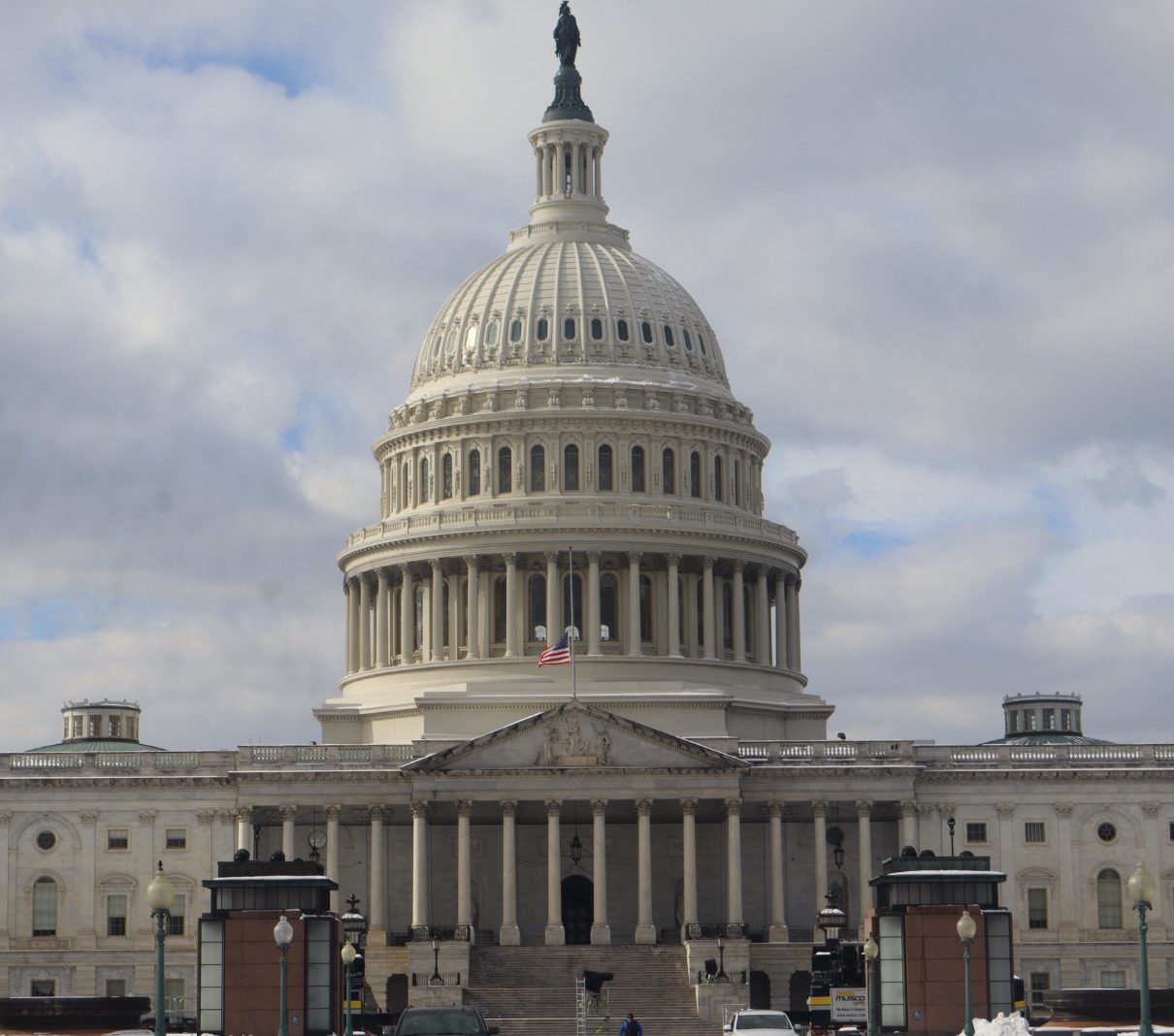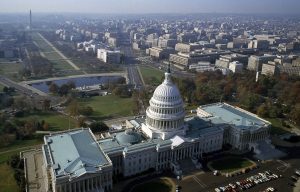On Oct. 1, Associate Vice President for Federal Government Relations Katy Button sent a university-wide email in response to the federal shutdown, detailing its implications for Georgetown students and, in particular, interns on Capitol Hill.
“The federal government is the largest employer in the Washington, DC, region, and this disruption may have meaningful consequences for our students, faculty and staff, as well as their families and friends,” Button wrote.
The federal government shut down on Oct. 1 after a partisan divide over issues such as health insurance led to an unresolved budget dispute. Depending on the department, many federal workers will be suspended temporarily or left without pay, even if they have to stay on the job.
The shutdown is especially difficult for Georgetown interns on the Hill, looking to gain more experience in government. Maggie (SFS ’26), an intern for representative Sarah McBride (D-Del.), will not return to her internship during the shutdown. Maggie declined to share her last name citing privacy concerns.
“House interns have been deemed non-essential so we are obviously not getting paid—because no one’s getting paid—but we are asked not to come in,” Maggie said. “It’s a bit hard because the shutdown is so uncertain about when it’s going to end, and I only intern through December.”
Maggie said if the government shuts down for a month or more, like it has in previously during the Trump administration, it would take away from her experience interning for Congress. However, compared to her full-time coworkers, the shutdown is easier on her.
“The other interns are full-time, and they’re not currently in school, so they’re kind of just hanging out in D.C. now without a job, which is hard,” she said. “At least I am part-time, and I still have my classes to focus on.”
McBride is still in communication with Maggie, even though she cannot come to work. Her office gave Maggie and the other interns warnings that a shutdown was likely to happen and what to do in that event.
“The general consensus was that we were likely going to shut down,” she said. “Government shutdowns shouldn’t be normal, but they feel normal in this day and age. It’s something that I’ve kind of already come to terms with.”
Lucas Beekman (SFS ’28), who currently works under Representative Chris Deluzio (D-Pa.), said his legislative coordinator told him before the shutdown that he would text Beekman when he was allowed to return. His coordinator has yet to communicate with him.
“The general feel of the whole office in the week before it happened was, ‘It’s gonna happen,’” Beekman said. “They’re generally hopeful that it doesn’t last too long, of course, because there are people that are seriously affected.”
Beekman said he was fortunate that he did not rely on the pay from his internship. But for other interns in his office who have come from out-of-state to intern, the shutdown hits hard.
“I don’t think they have much to do besides this,” he said. “They’re stuck in a limbo.”
Beekman mentioned Deluzio shared on X that he supports the movement “No Pay for Congress,” which supports blocking congressional pay in solidarity with other federal employees. This follows members of Congress who elected to withhold their pay during the shutdown.
James Long (SFS ’28), an intern for Senator Bill Hagerty (R-Tenn.), can continue his internship, but will experience changes.
“The only difference will be that I won’t be getting paid until the shutdown ends,” Long said. “I’ll get back pay. The only thing on the day-to-day that will change that I’m aware of is that capital tours are closed, so I won’t be giving any of those.”
Like Maggie and Beekman, Long received a briefing on the possibility of a federal shutdown on Tuesday, when the office notified him that he could continue going to work. His office issued a memo deeming the interns essential workers. Such decisions are made on an office-by-office basis, according to Long.
Although the shutdown impacts his job description and financial compensation, Long remains optimistic about government work.
“The government has its bright days and its dark days,” Long said. “I would love to see compromise and everybody figure out a solution that’s going to get federal workers that are furloughed back to work.”
Similarly, Maggie plans to work in government in the future. She said the shutdown has not changed her aspirations, and instead, McBride’s dedication to her constituents has been inspirational to her future in the government.
Beekman aspires to work in government. He worries about how the shutdown is impacting his experience interning.
“Had the government not shut down, I would have had more room to learn and more room to get my hands dirty and really get into the weeds,” Beekman said.
If the shutdown persists for over a month, Beekman would miss a third of his internship experience, which only extends until December.
“That could be a big problem because I’m only here so long,” he said.
As further information on the shutdown emerges, Georgetown is committed to updating its community members.
“We understand that recent changes within the federal workforce are bringing uncertainty and challenges, and we are committed to supplying as much information as we can to help you during this time,” Button wrote. “We will continue to monitor the impact of the shutdown and will provide updates as appropriate.”







